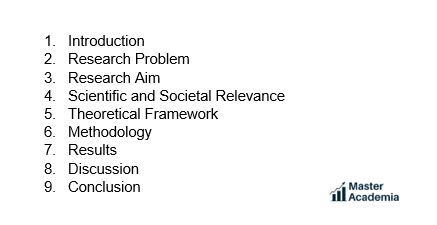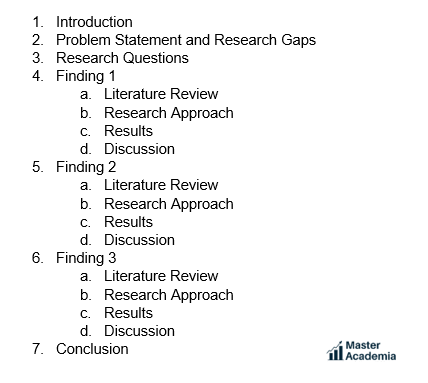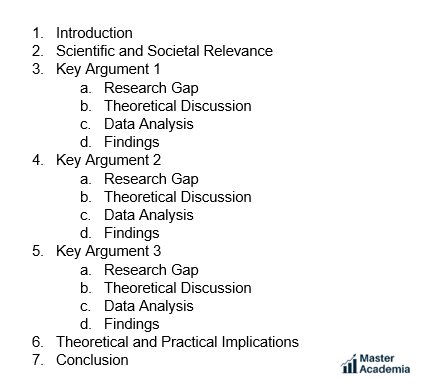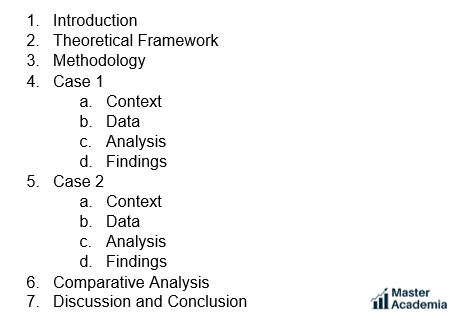- School of English
- Postgraduate study

PhD programme
The School of English is an ideal place to pursue PhD research. Our experts specialise in literature, language, linguistics, theatre, film and creative writing, and the interdisciplinary nature of the School provides unique opportunities for cross-departmental and collaborative research.

The PhD programme in the School of English is a course of supervised independent research, leading to a thesis of around 75,000 words, and culminating in an oral examination (a viva). It will take you three to three and a half years to complete a full-time PhD programme with us; part-time study lasts from six to seven years. The key feature of the PhD is that it is yours : the topic, planning, motivation, and thinking come from you. The PhD offers an exciting opportunity for you to push forward the boundaries of knowledge and to become an authority in your chosen field.
Our creative writing PhD program leads to a full-scale creative project, such as a novel, collection of short stories or poetry collection, accompanied by a 40,000-word critical project.
The creative element must be complete and potentially publishable, whilst the critical element is a free-standing research project, with specific research question(s), methodology, and a set of primary and secondary texts for analysis. We welcome interdisciplinary, mixed media and multimedia projects, and are able to host complex projects with co-supervision from specialists in music, architecture, theatre and film.
The critical component makes up 40% of your PhD and typically comprises three chapters of 10,000 words, an introduction and conclusion.
The creative component makes up 60% of your PhD. As a guide, you would be expected to produce a full collection of stories or a novel, ranging in length from 60,000 - 80,000 words. For poetry, the submission needs to be a full collection of around 50 poems or equivalent.
Your research will be supported by a primary supervisor, an expert in the area of research, who facilitates your progress along the way. You can expect research supervision every four to six weeks.
You will have an additional supervisor whose role is to support your training and development and to guide your progress towards timely completion of your thesis.
The supervisory team is completed by a Personal Tutor whose role is to support your well-being.
Find a supervisor
What are the entry requirements?
- A good first degree (2:1 or equivalent)
- A Masters level qualification (Merit or equivalent)
- English as your first language, or an overall IELTS grade of 7.5 with a minimum score of 7.0 in each component.
What do I need to submit?
You must submit a PhD Supporting Statement and Research Proposal , and a sample of your academic writing (6000-8000 words). You will also need proof of your previous degrees, two academic references, your English language certificates (if required), and a CV.
What is the process for applying?
Applications are made via an Online Application form. Before you apply, make sure you know about key deadlines .
Next steps to apply
There are several scholarship and funding options available to PhD applicants interested in studying at the School of English, both from the University of Sheffield and from external funding bodies.
Find out more
As a PhD student you’ll have access to a range of training and development opportunities to help you get the best out of your research and develop professionally. The School aims to create a research culture where your ideas can develop and flourish, and provide you with the facilities and support to complete your research project successfully.
How we support you
Students have access to the Graduate School Centre . The University Library subscribes to the major databases and peer-reviewed journals, and there is a regular free minibus to the British Library’s depository at Boston Spa. We also have strong links with Sheffield’s museums and theatres, contacts which we use in our research and teaching.
The School of English is a vibrant and welcoming research community of over 100 academic staff, postdoctoral and postgraduate researchers. We are home to several research centres, with many opportunities to hear from others and share your research.
Our postgraduate community and research culture
Search for PhD opportunities at Sheffield and be part of our world-leading research.
English Literature
The PhD programme in English Literature offers the opportunity for postgraduate students to make an original contribution to knowledge in their chosen field of study and to become part of a thriving, internationally-renowned research community.
- Career prospects
- Fees and funding
- Entry requirements
- How to apply
We welcome applications for research across the chronological and theoretical range of English Literature.
Successful applicants will be supervised by academic staff working at the forefront of their fields and leading debate in the ever-changing environments of the discipline.
Doctoral students are encouraged to push beyond the boundaries of critical commonplaces, to think differently and to participate fully in the rich intellectual life of the School. As well as working closely with a dedicated supervisor, or supervisors, students are able to develop their projects within the context of a dynamic and well-resourced interdisciplinary research culture.
Programme aims
The culmination of the PhD in English Literature is a sustained piece of written work that makes an original contribution to knowledge and understanding in a chosen field of study. Successful PhD students are trained in the most sophisticated critical and theoretical practices in preparation for a career in Higher Education or professional employment requiring advanced research skills and subject knowledge at the highest level.
Distinctive features
- A dynamic and supportive interdisciplinary research culture that connects the vibrancy of Cardiff’s literary and cultural location to the broader international contexts of the discipline.
- Access to a diverse range of research training and professional development opportunities, including: a weekly thesis workshop; a student-led annual postgraduate research conference; a residential conference for students in their first year of study at Gregynog Hall , a country house with a distinguished artistic heritage set in glorious countryside in mid-Wales.
- We offer teaching opportunities on the undergraduate degree and PhD students can undertake the School’s unique ‘Learning to Teach’ programme, accredited by the Higher Education Academy.
- The School provides a dedicated suite for research students with computing facilities, networked information and access to email and Internet.
- Postgraduate research students can apply for School funding to attend academic conferences and/or undertake archival/library visits.
Skills developed
In addition to working closely with a supervisor, doctoral students attend a weekly thesis workshop, which offers discipline-specific research training as well as opportunities to share work-in-progress with other students.
The workshops run alongside the integrated research and professional skills training programme, which includes career management skills, offered by the Doctoral Academy.
The PhD is assessed by submission of a thesis of 80,000 words and a viva voce examination.
The MPhil is assessed by submission of a thesis of 50,000 words and a viva voce examination.
'I’m particularly struck by our communal interest in what goes on at the interface of different traditions, methodologies, theoretical approaches, disciplines and practices. It gives Cardiff a particular entry into cutting-edge research that continually engenders new and exciting questions both for our staff and, through our PhD supervision and our research-led teaching, also for our students at all levels' (Professor Ann Heilmann, Director of Research in the School of English, Communication and Philosophy).
The School’s research is recognised internationally for its excellence and was ranked in the top ten for the quality of its English Language and Literature research (which includes Critical and Cultural Theory and Creative and Critical Writing), in the latest Research Excellence Framework (REF2014).
Cardiff University recently joined the world's top 100 universities for the study of English Language and Literature in the 2016 QS World University Rankings .
Research environment
The School’s commitment to the intellectual and professional development of its postgraduate students is underpinned by the provision of a high-quality supervisory experience, advanced-level research training and access to the resources necessary to help each student flourish intellectually and work productively.
The vitality of the English Literature research community is evidenced by the diverse range of reading groups, research centres, visiting speaker series and public engagement platforms in which staff and students participate, including: Assuming Gender, the Centre for Editorial and Intertextual Research (CEIR), the Cardiff Romanticism and Eighteenth-Century Seminar (CRECS), the Medieval and Early Modern Research Initiative (MEMORI), the Modern and Contemporary Research Group (MoCo), as well as Cardiff BookTalk and the Cardiff Poetry Experiment.
In addition, the School runs a student-led annual research conference for postgraduates working in English Literature, Creative and Critical Writing, Critical and Cultural Theory and Philosophy, the aim of which is to foster interdisciplinary conversations and to enhance students’ individual research and employability skills.
The Arts and Social Studies Library contains substantial collections in all our subject areas, together with extensive electronic resources. It is also home to Special Collections and Archives, which holds specialist collections, such as Cardiff Rare Books (a collection of over 14,000 items ranging from fifteenth-century incunabula to twentieth-century fine press books), as well as materials relating to Devolution, Eastern and Central Europe, the First World War, Illustrations, Labour history, Welsh literature and culture, Witchcraft, Women’s History and Gender Studies, the History of Medicine and Science—and much more.
Students on the PhD in English Literature programme are able to take advantage of an extensive programme of training, including the opportunity to enrol on the School’s unique Learning to Teach in Higher Education programme, a Master’s-level module accredited by the Higher Education Academy.
They also have access to a dedicated suite of research rooms with excellent computing facilities, networked information and access to email, a generous research allowance, a contribution to photocopying costs and use of free printing facilities. Our Home, EU and International students are encouraged to develop and enhance transferable skills that will increase their employability, both inside and outside of Higher Education, in an increasingly competitive jobs market.
Research projects
We offer expert supervision across the chronological and theoretical range of the discipline, with particular strengths in the following areas:
- African American literature
- book history
- children’s literature
- critical and cultural theory
- cultural history
- digital humanities
- editing theory and practice
- experimental writing
- film and adaptation
- gender and sexuality studies
- historicism (new-Elizabethan, neo-Medieval, neo-Victorian, counter-Romantic)
- illustration studies
- literary history
- literature of the long eighteenth century
- literature and the environment
- literature and law
- literature and science
- literature and slavery from 1760 to the present
- manuscript culture
- medical humanities
- medieval literary and cultural studies (including medieval afterlives)
- modern drama
- modernist literature
- Old Norse-Icelandic and Old English literature
- postcolonial literature
- postmodernist literature
- renaissance literature
- romantic literature
- Shakespeare
- Victorian and neo-Victorian literature
- visual culture
- Welsh writing in English
- women’s writing and women’s literary history.
More information about staff and their fields of expertise .
Job roles: Lecturer, Researcher, Editor, Head Teacher, English Teacher, EFL Teacher, PR Officer.
Employers: Universities from Cork (Ireland) to Wisconsin State (USA), Oxford University Press, Penguin Random House, Palgrave MacMillan, London Film School, Virgin Media, Literature Wales, Visit Wales.
Employers: Oxford University Press, London Film School, Palgrave MacMillan, Universities from Cork (Ireland) to Wisconsin State (USA), Virgin Media, Literature Wales, Visit Wales.
UK government postgraduate doctoral loans
Candidates for the Professional Doctorate programme may be eligible to apply for a UK government postgraduate doctoral loan.
The School welcomes enquiries from applicants who are considering applying for funding for a PhD in English Literature from the South, West and Wales Doctoral Training Partnership .
See our latest PhD studentships and projects and find out more about other funding opportunities .
Tuition fees
Students from the uk.
Get the latest information on postgraduate fees.
Students from the EU, EEA and Switzerland
Students from the rest of the world (international).
A step by step guide to the application process .
Research proposal
Applications for research degrees should be accompanied by a research proposal of around 1,000 words maximum. This should include a draft title and establish key objectives in terms of the basic research questions you intend to address.
The proposal should additionally situate your work in relation to the wider field of existing scholarship; give an initial sense of the original contribution you hope to make and provide an indication of your intended research methodology. A preliminary bibliography of expected key sources should also be appended.
In addition to the research proposal, application form and supporting documents, we also require an essay on a literary topic of your choice (around 4,000 words, in English).
You are recommended to email the postgraduate administrator at [email protected] with your research proposal prior to making a formal application.
Find out more details on how you write your research proposal .
Admission process
The Director of the Postgraduate Research Programme in English Literature assesses all applications, taking into consideration the quality and viability of the research project, as well as the capacity of staff to supervise it. This will include consultation with potential supervisors. Applicants who pass this initial stage of assessment will then be invited for interview.
Applications are welcome from graduates with at least a 2.1 in English Literature (and/or relevant discipline) and an MA in English Literature (and/or relevant discipline).
English language requirements
The School welcomes applications from students outside the United Kingdom. For non-native speakers of English, an IELTS overall score of 7.5 with at least 7.0 in each sub-score is essential.
Please read our English language requirements for more details.
Administrative contact(s)
Encap postgraduate admissions.
Administrative contact
- Email [email protected]
- Telephone +44 029 2087 0322
Admissions policies Chevron right

PhD Studentships and projects
Related courses.
- Browse by School
Related subjects
- Search subjects
- Search Subjects
Related links
- Postgraduate tuition fees Chevron right
- Admissions criteria for postgraduate study Chevron right
- Information for your country Chevron right
Postgraduate
Progress happens when extraordinary people come together to think about what matters most. Join a community where everyone is empowered to reach their potential and make a difference.
Postgraduate prospectus 2025

Download a copy of our prospectus, school and subject brochures, and other guides.
Order or download
Get in touch if you have a question about studying with us.

Common PhD Viva Questions (To Help You Prepare For Yours)
May 27, 2022

Capable of striking fear into the heart of even the most confident PhD student, the Viva looms large over the entire PhD journey. No matter whether the PhD is going well or causing problems, there’s always the viva to worry about.
Long story short, everyone is scared of the viva.
One thing that can help is knowing what to expect during the viva itself. That’s why we got in touch with Professor Peter Smith, who recently published The PhD Viva: How to Prepare for Your Oral Examination with Palgrave, and who has successfully supervised 60+ PhD and professional doctorate students and examined a further 50+ PhD students all over the world. We asked him what the most common questions are that students face during their vivas. Read his answer below.
This is not a normal blog subscription
Each week we send a short, thought-provoking email that will make you think differently about what it means to be a PhD student. It is designed to be read in thirty seconds and thought about all day.
1. An Opening Question
The examiners will quite often start a viva with an opening question; perhaps something like this: “Spend five or ten minutes telling us about your work, what you have done, and what the contribution is” or “Summarise your work for us, in a single sentence.” A question like this gives you an opportunity to explain your work up front, breaks the ice, settles you in and gets you talking. Making a contribution is the most important element of the PhD thesis. It is very likely that you will be questioned about this.
2. The aims, objectives, research questions, and hypotheses
In your thesis you will have set out the purpose of your work. Depending on the discipline that you working in, you may have called this an aim (with accompanying objectives), a question (or a series of questions) or an hypothesis (or a series of hypotheses). It doesn’t matter what you have called this in your thesis; you need to be prepared to explain and justify it to the examiners. Typical questions might be “explain your research question and how you derived it.”
3. Coverage of the literature
The examiners will want to be sure that you understand the literature which underpins your work. An important criterion for the award of PhD in that the candidate demonstrates knowledge of the relevant work of other researchers in your field. So it is likely that they will ask some questions which test your knowledge of the academic literature within your subject. You may, for example be asked: “Which are the three most important papers which relate to your thesis?”, “Whose work has most influenced yours, and why?”, or “Whose work is the closest to yours?” and “How is your work different to theirs?”

Prepare for your viva. One question at a time.
Prepare answers to the most common PhD viva questions with this interactive template. It’s free to download and it’s yours to keep forever.
4. Methodological questions
The methodology, and the approach you have taken, is another area that the examiners are likely to want to discuss. This could come in the form of a question asking you to justify your approach: “Why did you choose to use a qualitative approach?” and “What alternative approaches might you have chosen?” or more detailed questions about the methods used: “Why did you use focus groups rather than interviews?” or “How did you select the group of people to interview?”
Most PhD’s have some ethical issues which they need to be considered. This may take the form of a specific question such as: “Explain the ethical protocols and approval procedures which you followed” or “Did you obtain informed consent?”, or a more general question, such as: “What are the ethical implications of your work?”.
6. Decisions you made
Along the way, you will have had to take several decisions as to the next step to take. The examiners may ask you to discuss and justify these. This could take the form of a very general question: “What was the most important decision that you had to make during the course of your PhD?”; “Which decisions would you change if you were to do the work again?” or something much more specific: “Why did you choose to test your system on this group of people?”
7. Evaluation
It is always important to show that you have evaluated the work that you have done. Typical questions could be: “How did you set about evaluating the work you did?”, “How does your work compare to that of others?”, “What is the strongest point of your work?”, “Which part of your thesis are you most proud of, and why?”, and “Which is the weakest part of your work?”.

8. Future Work
Examiners will almost always ask about possible areas for future work. Questions could be: “If you had another year, what would you do?” or “How would you continue with the work? What are the next steps?”
Wrapping up
With the right preparation and mindset, the viva is nothing to be scared of. Work through model answers to the questions above, have a good read of your thesis, and have faith that you know your research better than anyone else. Then, on the day, try to have fun.
If you want to be as prepared as possible for your viva, book yourself onto a one-on-one mock viva with Professor Smith. Boost your confidence with a full practice run before the big day. Click here to find out more.
Hello, Doctor…
Sounds good, doesn’t it? Be able to call yourself Doctor sooner with our five-star rated How to Write A PhD email-course. Learn everything your supervisor should have taught you about planning and completing a PhD.
Now half price. Join hundreds of other students and become a better thesis writer, or your money back.
Share this:
This article has been incredibly helpful in preparing a plan and script for my upcoming viva. It introduced me to several intriguing questions I hadn’t considered before. The real test will be how well the viva goes, but at least I now have a head start. Many thanks!
Submit a Comment Cancel reply
Your email address will not be published. Required fields are marked *

Search The PhD Knowledge Base
Most popular articles from the phd knowlege base.
The PhD Knowledge Base Categories
- Join Our Next Four Week Writing Sprint
- Mastering your theory and literature review chapters
- How to structure and write every chapter of the PhD
- How to stay motivated and productive
- Techniques to improve your writing and fluency
- Advice on maintaining good mental health
- Resources designed for non-native English speakers
- PhD Writing Template
- Explore our back-catalogue of motivational advice

Viva examinations: guidance

This guidance explains the viva process, how to prepare, what will happen on the day and what the possible outcomes are.
This information is for postgraduate research students. It covers:
- before your viva
- preparing for your viva
- during your viva
- outcomes of the examination
Before your viva
Entry forms.
You must enter the exam via Portico about four months before you are ready to submit. You may not submit your thesis until you have entered for the examination and your examination may be delayed if you have not done this.
Find out more about examination entry
Your supervisor is responsible for arranging the appointment of your examiners. This should be done at the same time as you complete your examination entry form, four months before you are due to submit your thesis. Examiners are appointed by UCL for their professional services as examiners with expert subject knowledge. A minimum of two examiners, one from outside UCL and (normally) one from UCL are appointed to co-examine all research degree candidates. The examiner nomination form can be found here .
Submit your thesis
Find out more about formatting, binding and submitting your thesis.
Collaborative research projects
If you are contributing to a collaborative research project you must include this information in the introduction to the thesis. You must clearly identify the demarcation between the research you are submitting for examination as an original contribution to knowledge and the work of your collaborators.
Viva arrangements
Your supervisor (or nominee) will liaise with you and your examiners to arrange and confirm a mutually convenient time and place to hold the viva examination. The viva must not be arranged before the examiners are formally appointed by UCL. It may take place at UCL, or remotely. Your examiners should have your thesis at least six working weeks before the viva and you will receive an email once the thesis has been sent to the examiners. At this point, you will be able to record the viva via the ‘Research Student Administration’ section in Portico. A user guide is available with step-by-step instructions for submitting this information. Your viva should then take place within three months of the dispatch of the thesis to your examiners.
Download the viva notification user guide
Reasonable adjustments
If you or one of your examiners have a disability which UCL cannot accommodate, other reasonable arrangements can be made for the viva. You must make a request in writing when you complete the examination entry form to allow time for arrangements to be made.
Preparing for your viva
We recommend that you re-read your thesis. Try to anticipate questions, comments and criticisms, and think how you would respond. Although you may not be able to anticipate actual questions to be asked by the examiners, this approach will encourage you to think actively about your work. You should also refresh your memory of the relevant literature. Do not attempt to re-read every paper in the bibliography of your thesis; instead, re-read carefully some of the more recent key references. If you have left university after submitting your thesis you may be unaware of very recent work. Ask your supervisor a couple of weeks before the viva whether any work of direct relevance to your thesis has been published since you submitted your thesis.
You must not contact your examiners directly at any point leading up to the viva. All contact should be done by your supervisor or other relevant departmental staff member.
A good way to prepare for your viva is to practice. Your supervisor should give you a mock viva, or arrange for this to be undertaken by a member of your upgrade panel.
Training to support writing your thesis and prepare for your viva 1) The Doctoral Skills Development Programme has courses on formatting your thesis, tips on thesis writing and viva preparation. 2) Academic English courses are available for doctoral students who want to enhance their academic writing and oral communication skills. 3) Arrange to speak with a digital skills trainer who can answer specific questions, troubleshoot issues or point you to training courses or resources for self-study. They also have a thesis clinic that runs throughout July and August each year. 4) Your faculty and department may host their own workshops on writing a thesis. Contact your PGR administrator to find out.
During your viva
A viva is an academic interview at which your examiners will be looking for an understanding of the subject matter of your thesis, an appreciation of its significance to established knowledge in the field, and an awareness of the breadth of the subject area.
Your supervisor will be invited to attend your viva examination, unless you request otherwise; you must indicate this on your examination entry form. Your supervisor does not have the right to participate in the viva examination but may contribute if invited to do so by the examiners.
The examiners will expect you to:
- show a critical analysis of your own work and of that of others
- appreciate the limitations of the methods employed and the results obtained by yourself and others
- understand how the broad conclusions of your thesis support, add to or conflict with previous work
- know the major concepts and recent developments in your subject
There is no formal procedure laid down for the conduct of the viva examination. Some examiners prefer to work through the thesis in the order in which it is written. Other examiners prefer to discuss topics. Very few examiners will perform a page by page criticism. You may be asked to prepare a presentation of your work in a suitable format.
You are not expected to know your thesis by heart, but to refer to the appropriate page when the examiners wish to discuss a specific point. Please ensure that you bring to the viva examination a copy of your thesis paginated in the same way as the copies you have submitted to the Research Degree Examinations Office.
You should not simply answer 'yes' or 'no' to questions nor give a prepared exposition. Try to answer the question as it is put, remembering that you are engaged in an academic conversation.
Be prepared to justify your ideas and conclusions. If the examiners challenge your interpretation but you feel that your case is a good one, muster your arguments and be willing to present your case firmly but courteously. However, if the examiners have identified a genuine weakness, concede the point gracefully. Even if you feel the examiners are unreasonably critical do not become argumentative or allow the discussion to become heated. You can agree to differ and to reconsider the point. All participants in the viva must abide by UCL's Bullying and Harassment Policy . If you make any comments to your examiners which put them under moral pressure, for example alluding to what will happen if they fail you, or if you offer any incentive to your examiners to pass you, they must terminate the examination and report to the Chair of the Research Degrees Committee via Research Degrees in Student and Registry Services.
Outcome of the examination
The following are the three most often received results and the subsequent procedures.
We will email you with reports from your examiners, copied to your supervisor, instructing you to submit the following documents:
- the electronic copy of your thesis
- thesis deposit agreement form (uploaded with the e-thesis)
We will award your degree once you have met the academic conditions, the Library have confirmed receipt of your e-thesis and the Deposit Agreement form, and you have cleared any outstanding fees.
The electronic copy of your thesis and thesis deposit agreement form should be deposited to the Library via UCL's Research Publications Service. Please make sure that you remove, or blank out, all personal identifiers such as signatures, addresses and telephone numbers from the e-thesis. Any photographs that you have taken should not show identifiable individuals without their permission and any you have taken of children should mask their faces. If you have any queries regarding this aspect of the process, please contact the Library directly.
UCL no longer requires a printed copy of your final thesis. If you do wish to deposit a hard copy you can do so by sending it directly to the Cataloguing & Metadata department of Library Services by post, or in person at the Main Library help desk. You will find more information about the process on the existing webpage for e-thesis submission.
Find out more about depositing an electronic and printed copy of your thesis
Once you have submitted these, we will send an email containing the confirmation of award and your reports to your email address you have recorded on Portico. The degree certificate will follow approximately four months after the official award date.
In the case of an examination for specialist doctorates (including the EngD, EdD and MPhilStud), the award of the degree is also conditional upon students passing all taught elements of their programme of study. The modules should be entered on to Portico by the Department and confirmation these elements have been completed will be passed from the Examinations Department to Research Degrees.
Minor corrections
This is by far the most common result received from the examiners.
We will email you with reports from your examiners, copied to your supervisor and Faculty Graduate Tutor. The deadline to submit your corrections officially starts from the date of this email, which will also indicate the name of the person designated to check your corrections. This deadline is for you to submit the corrections to the designated checker, and not to submit the final copy of your thesis.
Your examiners may have returned an annotated copy of your thesis to you and therefore you may already be aware of the work required. The designated checker should inform you of the format he/she expects to receive the corrections, although normally this will be in electronic format.
The designated checker should confirm the outcome of the examination within one month of receipt of the minor corrections to the thesis. This is usually done by sending an email directly to Research Degrees.
Once this has been received we will follow the procedure for a pass result.
Resubmission in a revised form
We will email you with reports from your examiners, copied to your supervisor, Departmental Graduate Tutor and Faculty Graduate Tutor. The 12 or 18 month deadline officially starts from the date of this email.
Unlike the outcome for minor corrections, where one person checks the amendments, the resubmission requires you to re-enter for the examination and submit two copies of your thesis for forwarding to the examiners.
Your examiners may have returned an annotated copy of your thesis to you and therefore you may already be aware of the work required.
Once you have completed the corrections, you will need to:
- submit a new exam entry form to Research Degrees at least two weeks prior to the expected submission of the thesis
- submit an electronic copy of your thesis to Research Degrees via the UCL Dropbox.
Find out more about formatting, binding and submitting your thesis. Your supervisor will be emailed to confirm that the examiners are still willing to act and provide their current contact details. This is to avoid the thesis from being sent out incorrectly. We will then send an email to your supervisor and examiners reconfirming their appointment and send the thesis to them via the UCL Dropbox.
If the examiners have requested a second viva, your supervisor will arrange this. In these circumstances, the procedure will follow that of a typical research degree examination.
If a further viva is not required, your examiners are only required to submit a joint report. They cannot award another 18 month resubmission, but can allow minor corrections.
Once the reports are received we will follow the procedure for either the pass or minor corrections result.
Other results
If the result falls outside the above descriptions, we will email you detailing the procedure you will need to follow.
Related content
- Research degrees: examination entry
- Format, bind and submit your thesis
- Doctoral school

How to structure your viva presentation (with examples)
Most PhD vivas and PhD defences start with a short presentation by the candidate. The structure of these presentations is very important! There are several factors and approaches to consider when developing your viva presentation structure.
Factors to consider when developing a viva presentation structure
Structuring your viva presentation traditionally, structuring your viva presentation around key findings, structuring your viva presentation around key arguments, structuring your viva presentation around case studies, final thoughts on viva presentation structures.
A PhD viva or PhD defence is often one of the last steps that PhD students have to pass before receiving a doctorate. The viva or defence usually starts with a short presentation of the PhD candidate on the PhD thesis.
Presenting a whole PhD in a short amount of time is very challenging. After all, a PhD is often the result of several years of work!
It is simply impossible to include everything in a viva presentation.
Therefore, tough choices have to be made in terms of what to include, what to highlight, and what to exclude.
The structure of a viva presentation plays a crucial role in bringing across the key messages of your PhD.
Therefore, there are several factors to consider when developing a viva presentation structure:
- Available presentation time : Viva presentations usually last between 10 and 20 minutes, but every university has different regulations. Developing a structure for a viva presentation that lasts 10 minutes is different from developing one for a presentation that lasts 20 minutes or more. Thus, find out how much time you are allowed to present!
- The key contribution of your thesis: The structure of a viva presentation should reflect the content and key messages of the PhD thesis. For instance, if you have written a very theoretical PhD thesis, it makes no sense to structure your whole presentation around your data collection and analysis. Make sure that the viva presentation structure is in line with your main messages.
- University standards: It is recommended to discuss your ideas and plans for your viva presentation structure with others, as each university may have may be different (and even unspoken) rules and standards. Ask your supervisors about their preferred viva presentation structure. And talk to your peers who defend their theses before you.
- Clear storyline : Every presentation should have a logical structure which allows the audience to follow a crystal-clear storyline. This is also true for viva presentations. Thus, clarify your storyline and develop a presentation structure that supports it.
A very traditional viva presentation structure simply follows the structure of the PhD thesis.
This means that the viva presentation covers all parts of the thesis, including an introduction, the literature review, the methodology, results, conclusions, etcetera.

The advantage of this rather traditional format is that it provides information on each thesis chapter. Furthermore, it is relatively easy to prepare.
The disadvantage of this traditional format is that it is very challenging to fit all the information in a – let’s say – 10-minute presentation.
Furthermore, it can result in a presentation that is quite boring for the examiners, who have read the thesis in preparation for the viva.
One interesting way is to structure a viva presentation around the key findings of the PhD research.
For instance, you can select your three main findings which you each connect to the existing literature, your unique research approach and your (new) empirical insights.

A viva presentation structure around key findings emphasises the unique contribution of a PhD thesis, particularly in empirical terms.
A challenge of this structure, however, is to narrow down the presentation to a handful of key findings.
Furthermore, it might be tricky to find enough time during the presentation to discuss your theoretical framework and embed your discussion in the existing literature when addressing complex issues.
A viva presentation structured around key arguments is very similar to one that is structured around key findings. However, while key findings place more emphasis on the empirical data, key arguments operate at a higher level:
Arguments are sets of reasons supporting an idea, which – in academia – often integrate theoretical and empirical insights.

So, for example, your key argument 1 is your stance on an issue, combining your theoretical and empirical understanding of it. You use the existing theory to understand your empirical data, and your empirical data analysis to develop your theoretical understanding.
A viva presentation structure around key arguments is probably the most difficult viva presentation structure to choose.
However, if it is well done, it is probably the most academically strong and advanced way of defending your PhD.
Another common way to structure a viva presentation is around case studies or study contexts.
This structure is only applicable when the PhD thesis includes a comparative (case study) analysis, which is quite common in the social sciences and humanities.
A presentation can, for instance, first discuss the theoretical framework and research approach, then present Case 1, and then Case 2 or more if applicable.

A viva presentation structure around case studies can be easy to follow for the audience, and shed light on the similarities and differences of cases.
However, as always, you need to reflect on whether the structure supports your key message. If your key message does not centre around similarities and/or differences in cases, this is not the structure for you!
Every PhD thesis is unique, and therefore also every viva presentation structure should be unique.
The key to a good viva presentation is to choose a structure which reflects the key points of your PhD thesis that you want to convey to the examiners.
The example viva presentation structures discussed here intend to showcase variety and possibilities and to provide inspiration.
Never just copy a viva presentation structure that worked for others .
Always think about what fits best to your thesis, asking yourself the following questions:
- What is the main message of my PhD that I want to share during my viva?
- How do I develop a crystal clear storyline to bring this main message across?
- How can I structure my viva presentation to support and facilitate this storyline?
Master Academia
Get new content delivered directly to your inbox.
Subscribe and receive Master Academia's quarterly newsletter.
18 common audience questions at academic conferences (+ how to react)
10 reasons to do a master's degree right after graduation, related articles.

How to disagree with reviewers (with examples!)

Types of editorial decisions after peer review (+ how to react)

10 things to do when you feel like your dissertation is killing you

26 powerful academic phrases to write your introduction (+ real examples)

COMMENTS
This article discusses top 12 most common PhD viva questions and how to answer them correctly without being baffled in front of examiners.
The Institute for Academic Development (IAD) offers courses to help PhD students, such as guidance on writing your thesis and presentation skills. “Viva survivor” is a popular workshop …
The PhD programme in the School of English is a course of supervised independent research, leading to a thesis of around 75,000 words, and culminating in an oral examination (a viva). It will take you three to three …
The PhD programme in English Literature offers the opportunity for postgraduate students to make an original contribution to knowledge in their chosen field of study and to …
A viva is an academic interview at which your examiners will be looking for an understanding of the subject matter of your thesis, an appreciation of its significance to established knowledge in the field, and an awareness of the …
A viva presentation structure around key findings emphasises the unique contribution of a PhD thesis, particularly in empirical terms. A challenge of this structure, however, is to narrow down the presentation to a handful of key …
Every Doctoral researcher is expected to defend their thesis through an oral test known as a viva voce - so discover how to prepare for your PhD viva and ensure you make a …